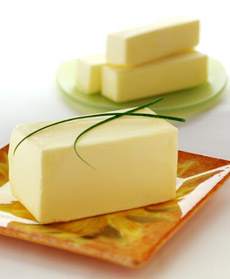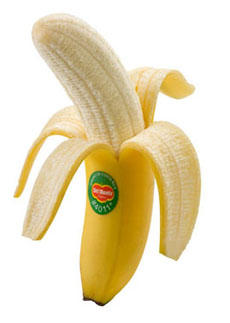FOOD FUN: Hidden Meanings Of 12 Popular Food Catchphrases
|
You may be as cool as a cucumber and know how to bring home the bacon, but do you know where those phrases come from? Here’s a list of food phrases with hidden meanings, compiled by Eat24.com. a website and search engine for restaurants that deliver food. 1. BACON: “Bring Home The Bacon” Meaning: Get the money Some believe this phrase originated in Dunmow, England where the Dunmow Flitch (flitch is a side of bacon) was given every four years to a couple who impressed the town with their strength of fidelity. However, most believe the term derives from a 1906 boxing bout. Joe Gan’s mother told him before the fight, “Joe, the eyes of the world are on you. Everybody says you ought to win. Peter Jackson will tell me the news and you bring home the bacon.” This quote was published in the New York Times and caught on, creating one of the tastiest expressions ever. Meaning: Go crazy When zoologists fed monkeys bananas, the apes went crazy over the tasty treat. This is also where we get the phrase, to “go ape.” Another origin may come from the drunken, bewildering behavior of Indonesians who got totally blackout drunk from a fermented banana drink called Tonto. But our vote is with the monkeys. |
Monkeys are responsible for the phrase, “go bananas.” Photo courtesy Del Monte. |
|
|
Meaning: Give away a secret This expression is believed to have originated in ancient Greece. Votes were held by the casting of beans: White beans meant yes and black beans meant no. If the vote collector dropped the jar and a black bean was seen, the vote was ruined. Meaning: Flatter someone excessively The origin of this phrase traces its roots to ancient India. When seeking favor from their higher powers, people would throw little balls of butter (more precisely, it was ghee, clarified butter) at statues of the gods. Butter was costly, so it was a fitting tribute. There’s an even older Tibetan tradition of making sculptures for the New Year out of butter, to bring peace and happiness. |
||
 Butter is expensive, so “buttering someone up” is a tribute. Photo courtesy Wisconsin Milk Marketing Board. |
5. CAKE: “Piece Of Cake” Meaning: Easy, requires little effort This phrase originated with the “cakewalks” of the 1870s. Cakes were awarded as prizes during competitions where couples would promenade around a cake. The couple who walked with the most grace and style was awarded the prize. Since the effort involved was relatively easy, the terms “cakewalk” and “piece of cake” entered our parlance. Meaning: An important person or the most influential person in a group Although today “cheesy” indicates something cheap, in the early 19th century, “cheese” was used to describe something top-rate. The phrase evolved from an Anglo-Indian term, “chiz.” Related terms: big enchilada, big gun, big kahuna, big shot, big wheel [of cheese]. |
|
|
7. COOKIES: “That’s The Way The Cookie Crumbles”/”Don’t Cry Over Spilt Milk” Meaning: Bad things happen There’s no hidden meaning behind this one: Sometimes a cookie crumbles before you can properly eat it, or a glass of milk gets knocked over. You may lose out but don’t despair: There will be another cookie and another glass of milk. Meaning: Calm and collected It’s a fact: The inside of a cucumber is actually 20 degrees cooler than the outside. Meaning: A person who’s no good This phrase originates from the use of “bad egg” to mean something that disappoints (as an actual bad egg certainly does). Today, it’s someone who disappoints through bad character and actions. Meaning: To chat or gossip This phrase comes from the practices of the Inuit natives of Alaska, who used to chew whale blubber. It took a long time for the blubber to dissolve, so there was plenty of time for light conversation. Another theory believes that the phrase comes from sailors who were forced to chew salt pork when supplies were low. Meaning: It’s all good This phrase originated from an Old English saying that explained, that life is meat and potatoes, and the luxuries are gravy. Meaning: Use your brain Noodles kind of look like brains. Originally “using your noodle” was an insult, implying that someone’s head was filled with wet, floppy noodles. Nowadays, it simply means “to think about it.” |
||
